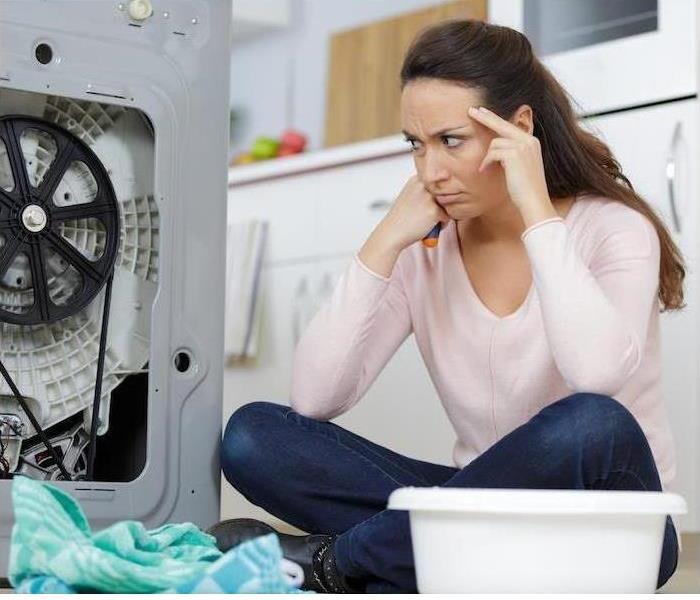Catch Appliance Leaks Before Water Damage Occurs
3/12/2020 (Permalink)
 If your home experiences any flooding or other water issue, SERVPRO of St Clair County is here to dry, clean and repair any damage.
If your home experiences any flooding or other water issue, SERVPRO of St Clair County is here to dry, clean and repair any damage.
All household appliances that utilize water are prone to leaks in one way or another, but if these leaks are not caught early on, water damage can begin.
Because many appliances are not moved or inspected with frequency, this water damage can be harbored for ages before homeowners are made aware—this is why regular inspections are so important for prevention.
<h3these-appliances-for-leaks-often">Inspect These Appliances for Leaks Often
Hot Water Heater
The lifetime of a hot water heater will typically span 10 to 15 years, but leaks can start much earlier than this. The seals and pipes connected to the hot water heater can often break down, so keeping an eye out for any accumulation both during and after use is a smart move.
Refrigerator
The rarity with which refrigerators are moved can lead to secret water damage that festers for ages before it is brought to light. A refrigerator’s water lines are typically made from a soft plastic that can easily fail, so checking for leaks behind and under the fridge as part of your annual home maintenance is wise.
Dishwasher
A dishwasher’s tubing is just as problematic as a refrigerator, but is even more isolated and utilizes far more water. Additionally, homeowner’s insurance often does not cover water damage caused by older models of dishwashers, so regular checks are extremely important to keep up with.
Washing Machine
Washing machine hoses are some of the most common sources of leaks. Because they are notorious for this, it is recommended that they are inspected at least once a month by homeowners so you can be sure no issues have arisen. In addition to these regular checks, they should be fully replaced every five years in order to prevent hidden deterioration.
Air Conditioner
The drain in your HVAC unit is designed to keep condensation from pooling in and around the unit, but if this drain malfunctions, water damage can quickly be caused. Reference your manufacturer’s manual to determine how often your unit should be inspected and serviced—having a professional technician evaluate your machine is the best defense against HVAC-created water damage.





 24/7 Emergency Service
24/7 Emergency Service